Fast and easy to grow, bamboo is revolutionizing production across several industries, including building, textile, paper, biofuel, and most importantly, the furniture industry. While bamboo has been used for producing a variety of goods for centuries, the demand for bamboo products has surged in the past few decades with the raising concerns for the environment and the need for renewable and eco-friendly resources.
But, what makes bamboo so special, and why should you consider it when making a buying decision? Read on to find out!
A Bit about Bamboo
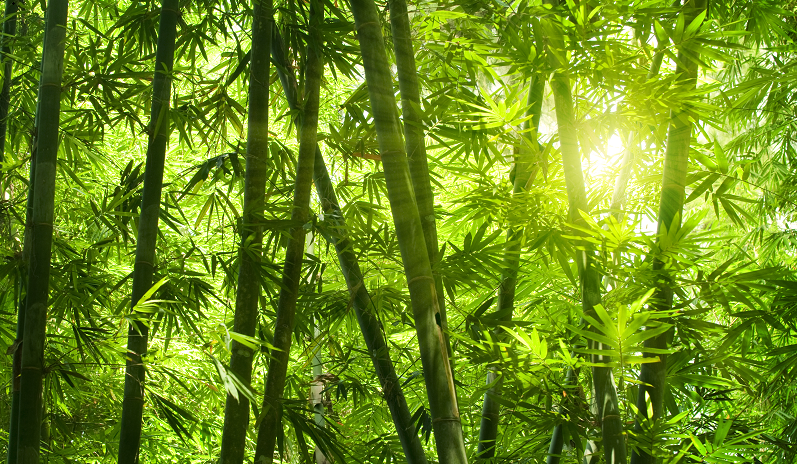
Bamboos are a group of fast-growing evergreen plants belonging to the grass family. Currently, there are about 1462 known species of bamboo, some of which are readily used to produce high-quality furniture and other eco-products.
They are native to warm, temperate, and moist tropical climates, but some species can also thrive in hot tropical to cool mountainous regions. Asia, particularly China, is one of the biggest producers and exporters of bamboo. It does not come as a surprise that Bamboo has a long history of use in the production of Asian furniture. Chinese bamboo furniture has been around for centuries. It dates back to 1000BC and holds significant value in Chinese culture.
All in all, bamboo furniture is nothing new. It is also trending in the West. Owing to the fast and easy growth of bamboo and the numerous benefits it offers for the clients, manufacturers, and the environment, many companies in the United States are growing, harvesting, and distributing different bamboo. It is also found abundantly in Africa.
The Many Benefits of Bamboo
One thing is apparent – the world is switching to bamboo products, and bamboo is the next big resource in the world of furniture. Here are some of the top benefits of bamboo and why we love it.
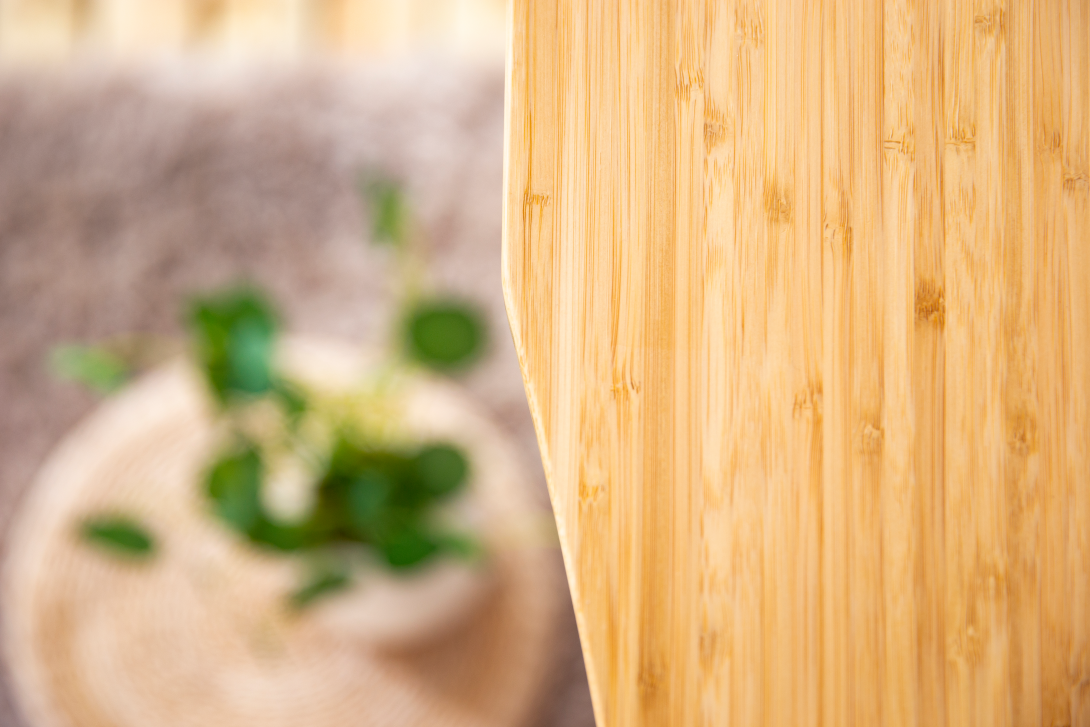
A Sustainable Resource
The term “sustainability” refers to meeting the current needs without compromising the ability of future generations to meet their needs. In other words, a sustainable resource can be described as something whose production is natural and indefinitely supported by nature. By this definition, certain factors go into determining the sustainability of a natural resource. We must consider how fast it grows, how long it lasts, where the resource is found, and other similar factors.
The good news is that bamboo checks all the right boxes in this regard. It is one of the few resources that feature the right combination of traits that make it truly sustainable in the long run without creating any adverse side effects on the environment.
The bamboo genus includes some of the fastest-growing plants in the world. Certain bamboo species can grow about 36 inches every day, which means that bamboo stalks may grow at the rate of 40mm an hour! At this rate, the bamboo plants grow to their full size in just about 1 to 5 years as compared to most other trees that can take ten years and more to grow. Unlike other timber, bamboo can be harvest 3 to 4 years after planting and every year after that!
Moreover, the plant is not particularly picky about the soil either. It has a high tolerance for marginal land that is of little agricultural value. It is quite self-sufficient and super easy to grow. Such naturally renewing qualities make bamboo one of the best renewable and sustainable resources.
Some Sustainability Facts
- Bamboo does not require any pesticides or chemical fertilizers. Furthermore, it does not require irrigation. As a result, the bamboo plants are super simple to grow and make an excellent option for people looking for eco-friendly alternatives. The cultivation is natural and does not harm the environment.
- Bamboo plants rarely require replanting. Bamboo regrows from its own root system. When harvested correctly, the plants multiply vigorously, making them the ultimate sustainable resource for producing sturdy furniture and other products. Since harvesting does not disturb the soil, bamboos are also good for the environment.
- Bamboo stalks can help with soil erosion. In other words, growing these plants can keep the topsoil of the fields from wearing off due to natural factors like wind and water or farming activities like tillage.
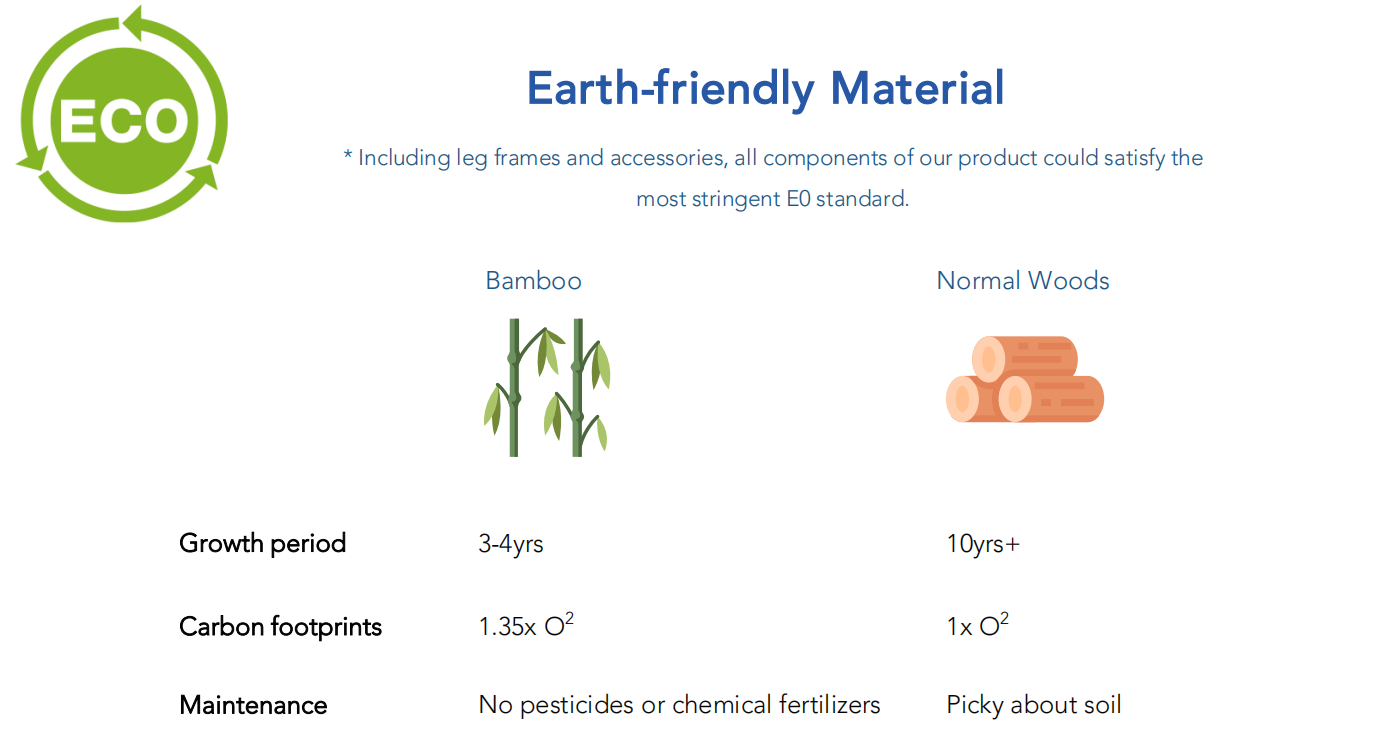
-
Carbon Footprint Reduction
Bamboo impacts the environment in more than one way. Apart from providing a renewable alternative to hard and softwood, bamboo plants are also extremely important when it comes to carbon footprint reduction. They are known for their ability to absorb carbon from the environment and generate high levels of oxygen.
Research shows that bamboos generate up to 35% more oxygen as compared to an equivalent stand of trees. It also works to minimize CO2 gases, sequestering up to 12 tons of CO2 from the air per hectare per year. Furthermore, an increase in bamboo use will contribute to the decrease in deforestation and encourage cultivators to utilize wastelands and unused river banks to grow bamboo. According to research on the environmental, social, and economic sustainability of bamboo, this will not only help with air pollution but will also lower the soil carbon content.
-
Strong, Flexible, & Durable
Given the gentle and delicate nature of bamboo, it can be hard to imagine that bamboo is extremely strong and durable. In fact, it is considered to be one of the hardest woods used in the furniture industry. It is important to understand that while bamboo has a relatively short lifespan, once treated, it can last for years and withstand even the roughest and tough daily use.
It is far more resistant to scratching and damage as compared to hardwood. Owing to the high strength, it is even used to make cutting boards for culinary use. Like wood, bamboo is a natural composite material boasting a very high strength-to-weight ratio, which means that despite being super sturdy, your bamboo furniture will be lightweight and easy to use and move around.
Research shows that the stronger bamboo species possess strength properties similar to high-grade hardwood. Due to the relatively lightweight and high strength, it is readily used in the construction industry to build sturdy floors and structures.
Another cool fact about bamboo is that it is highly flexible and has a tensile strength of 28,000 pounds per square inch as compared to the tensile strength of steel at 23,000 per pounds per square inch. Yes, you read it right – bamboo is actually stronger than steel in terms of tensile strength. Furthermore, furniture crafted using mature bamboo offers double the elasticity of the wood, further adding to the strength and durability of the bamboo product.
In addition to all these remarkable properties pertaining to strength and durability, bamboo material is resistant to insects, fungus, and moisture. In most cases, bamboo is smoked in its own resin to make the surface insect-resistant to prevent all kinds of insect infestations.
-
Aesthetically Appealing
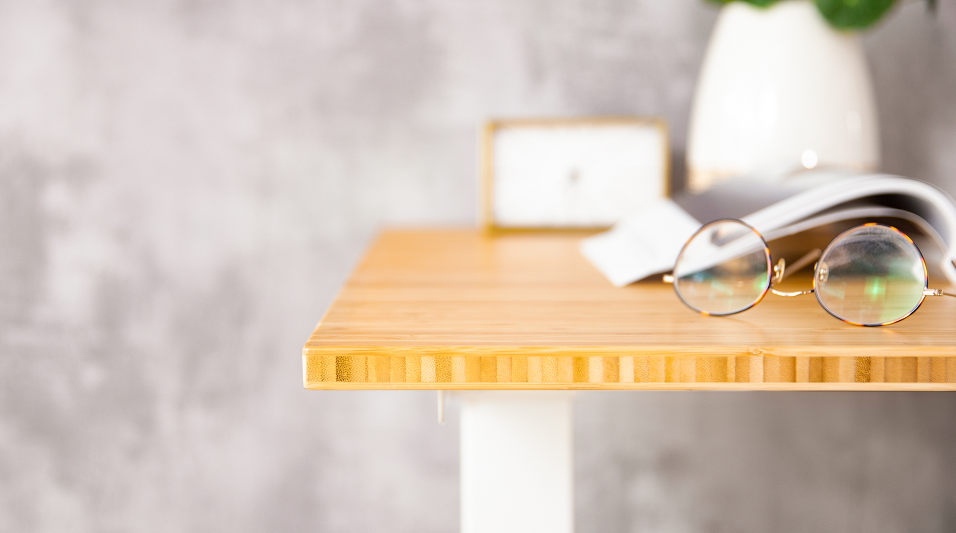
Beautifully crafted bamboo furniture can add an elegant vibe to your décor. Whether you incorporate it in your office set or invest in a beautiful bamboo table for your home, it will fit right in to boost the overall aesthetic appeal of your space. Good and reliable brands employ the latest technology, such as lateral compression technology, to retain the beautiful, natural grain of every bamboo strip.
The Bottom Line: Invest in Bamboo Furniture today!
Are you ready to invest in bamboo furniture? Consider Kana Bamboo Standing Desk (Eco & Pro) by FlexiSpot.
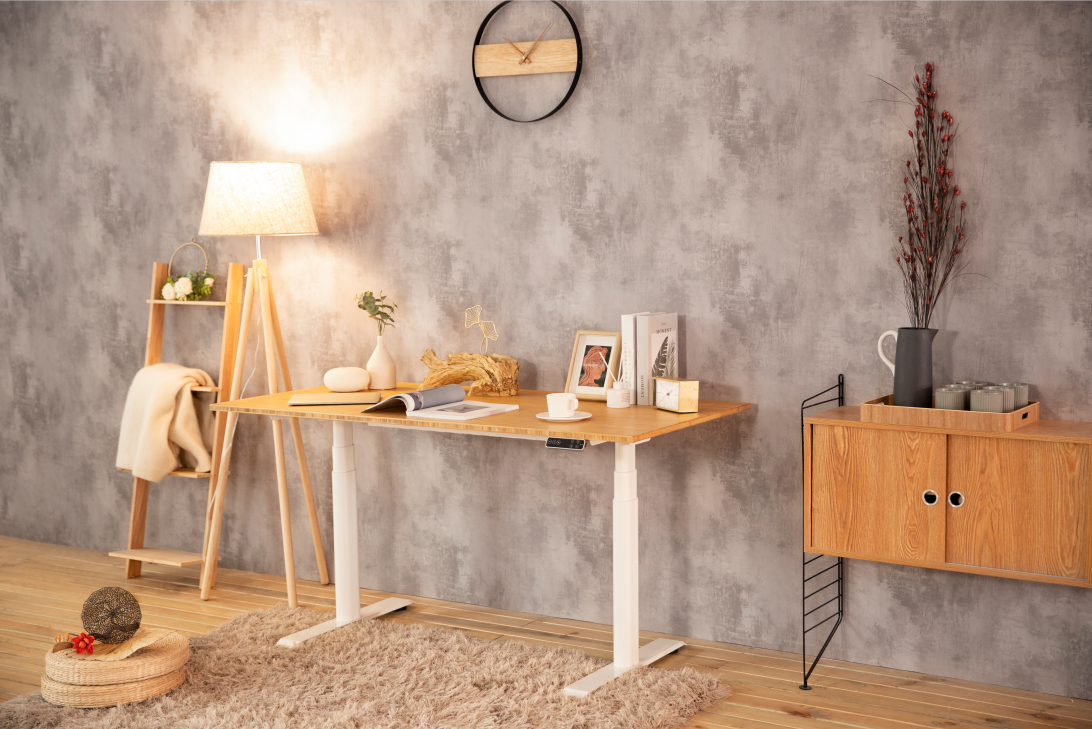
Designed keeping the needs of modern office workers in mind, the standing desk offers the perfect alternative for those who wish to make an environmentally smart choice and play their part in keeping the planet green and healthy.
An increase in bamboo use can undoubtedly play a role in establishing a sustainable environment and keeping the planet green. However, that’s not the only reason to consider investing in bamboo furniture.
When you opt for Kana bamboo, you get a tabletop that is stronger than wood and adds a highly elegant touch to your décor with its high aesthetic appeal. FlexiSpot reinforces the durability of the bamboo tabletop with carbonized technology and then coats it with an eco-friendly, water-resistant 2H lacquer that makes it scratch-resistant, moisture-proof, and insect-proof.
So, what are you waiting for? This is your chance to bring a piece of nature into your home or office. Visit FlexiSpot to learn more about Kana Bamboo Standing Desk and find other environmentally-friendly ergonomic products.
